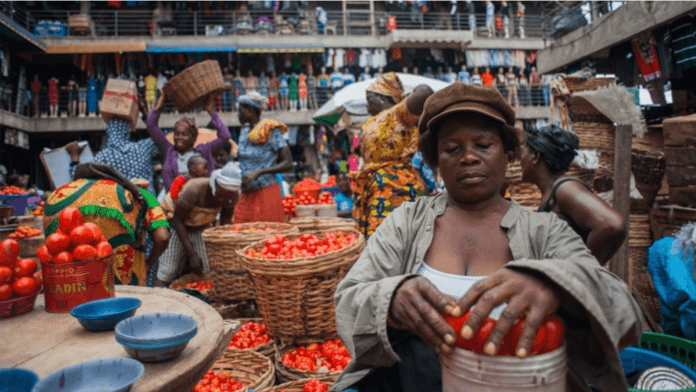News in brief:
– Farmers continue to face insecurity and lack of support, hindering the goals of Nigeria’s 2023 food security plan.
– Low adoption of agricultural technology and poor infrastructure slow progress despite high farmer interest.
Nearly two years after President Bola Ahmed Tinubu declared a state of emergency on food security, Nigeria’s agriculture sector is yet to record significant improvements, especially in the areas of security, technology adoption, and productivity.
Despite growing youth interest in farming, the country continues to lag behind global peers in adopting precision agriculture and other innovative practices that could transform food systems.
Policy promise vs. ground reality
The state of emergency, declared on July 13, 2023, shortly after the removal of fuel subsidy and the naira floatation, was aimed at addressing rising food prices, poor farmer security, and low agricultural output.
Dr. Dele Alake, then presidential spokesman and now Minister of Solid Minerals Development, had praised the policy for its potential to boost security for farmers, improve irrigation, and introduce commodity boards.
However, LEADERSHIP News investigations show that the situation on the ground has hardly changed. Farmers are still under siege by armed groups, with many required to pay harvest taxes to terrorists. Attacks and killings continue, discouraging investment and participation in agriculture.
Nigeria trails behind in smart farming
Unlike countries such as the US, Brazil, and the Netherlands that have witnessed massive gains from precision farming, ranging from increased yields to reduced soil erosion, Nigeria’s agricultural landscape remains largely traditional. Less than 1% of Nigerian farming households own tractors, and only 6% of arable land is irrigated.
In contrast:
- The US reports a 22% increase in yield from smart-agriculture tools.
- Brazil’s precision farming led to a 57% income rise and a 97% drop in soil erosion.
- The Netherlands recorded up to 40% efficiency gains using tech innovations.
- China and Australia show significant mechanisation and AI tool usage.
Farmers willing but unable to adopt innovation
Encouragingly, the report claims that farmers in northern Nigeria, particularly in Bauchi and Gombe states, are eager to embrace precision agriculture, with 96% and 92% adoption willingness, respectively. However, challenges such as high costs, lack of training, limited access to financing, and poor infrastructure continue to stall progress.
Arc Kabir Ibrahim, National President of the All Farmers Association of Nigeria (AFAN), stressed that food security cannot be achieved without modern technology. He urged the federal government to provide smallholder farmers with the necessary tools to scale up their productivity.
Private sector efforts and limitations
Private firms like TAO, Jet Farms and Agro Solution Ltd are trying to bridge the technology gap. Its founder, Jerry Olanrewaju, noted that digital tools like disease detection apps and mechanised platforms have improved outcomes for a few farmers. Through Jet Farms’ platform, Farm2C, farmers now enjoy pre-harvest sales, real-time updates, and better market access.
“Smartphone ownership is rising among our users, but affordability and digital literacy still hold many back,” Olanrewaju said. “We need inclusive, affordable innovations that women, youth, and underserved communities can access and use.”
Structural weaknesses undermine the emergency declaration
Despite having 77% of its landmass classified as arable, Nigeria’s agriculture remains underdeveloped. Researchers Achoja Roland Onomu and Michael Aliber identified low ICT usage and poor investment in agricultural technology as major barriers. Basic tools like improved seeds, irrigation systems, and digital apps are still inaccessible to most rural farmers.
With just two years remaining in the federal government’s National Agricultural Technology Innovation Plan (NATIP), stakeholders are calling for a multi-pronged, inclusive approach that makes agricultural innovation scalable and affordable.
Until these issues are addressed, experts warn that the 2023 declaration of a state of emergency on food security may amount to little more than a symbolic gesture.



